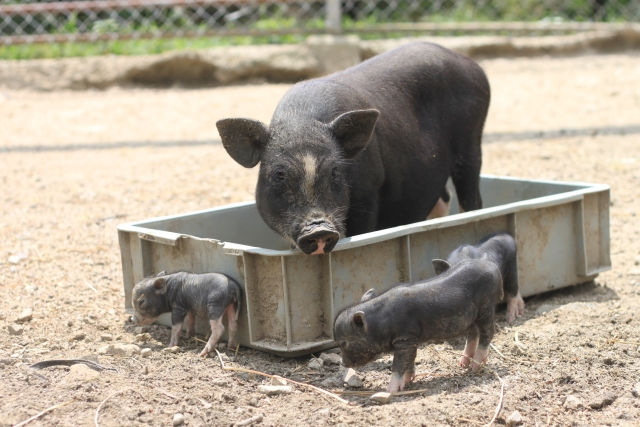What is Swine Erysipelas and how to prevent it?
June 13, 2022
Introduction
Swine Erysipelas is an infectious disease mainly seen on pig and wild boars from all over the world. It is caused by a bacterium called Erysipelothrix rhusiopathiae. Besides pigs and wild boars, erysipelas can be found on aquatic mammals like dolphins and whales, and birds and turkeys and even on humans.
Erysipelas’s existence was first discovered in 1885. Since then, it has caused a serious mortality in livestock and even in dolphins of aquariums specially during summer season.
Stress caused by sudden temperature change, overstocking and changes on food causes imbalance in the body and triggers clinical erysipelas.
Transimission route:
The main transmission route for erysipelas is oral infection with direct contact to carriers. It is also transmitted from wounds, nasal secretions and contaminated soil and urine.
Symptoms of erysipelas

Erysipelas can be categorized into acute, subacute and chronic type.
Acute type has a chance of high mortality rate causing high fever, loss of appetite, loss of energy, swelling of liver and spleen, anorexia and fatigue. Often red diamond-shaped skin lesions can be seen all over the body.
Subacute type has sign of measles-like pink, fever and loss in appetite. Those signs disappears within few days but some dies because of it.
The chronic type has no apparent abnormalities, but sign of heart problems caused by infection of heart values can occur which may lead to sudden death. This type has swelling, pain and lameness of joints.
Human transmission
The erysipelas enters human from direct contact with infectant when bacteria enter the skin through cuts or sores.
Infected person has symptoms of fevers, chills, high temperature and dermatitics. This disease needs serious attention as it may develop endocarditis and arthritis, and even lead to sepsis and death.
This disease does not transfer from human-to-human.
Erysipelas on animals

Erysipelas is a disease that has been found all over the world affecting pigs and wild boars, aquatic mammals like dolphins and whales, and birds like chicken, turkeys and ducks. In recent years, it has been reported that the outbreaks has reached even dogs.
Prevention and treatment of swine erysipelas

If not treated well, erysipelas can lead to death, but vaccines can be used as basic prevention measures.
Penisillin is found to be most effective way to treatment.
Good hygiene management is the key to prevent erysipelas. In fact, the facilities those using Meau for watering has proven to have significantly lower cases of symptoms than others. Regular vaccination and uses of Meau will guarantees the proper hygiene environment for both animals and people without been affected by erysipelas disease.









